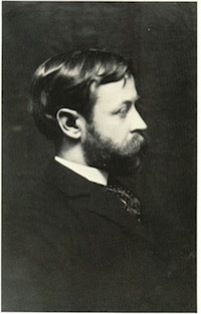
Daniel Simons
Born:
Connection to Illinois: Simons moved to Illinois in 2002. He is a Professor in the Department of Psychology at the university of Illinois, where he directs the Visual Cognition Laboratory. He lives in Champaign. Biography: Daniel Simons is a Professor in the Department of Psychology at the University of Illinois where he also has appointments in the Gies College of Business and the Sandage Department of Advertising. His first book, co-authored with Christopher Chabris, is titled "The Invisible Gorilla." Their second book, "Nobody's Fool: Why We Get Taken In And What We Can Do About It" will be published by Basic Books on July 11, 2023. Simons received his B.A. from Carleton College and his Ph.D. from Cornell University. After five years on the faculty at Harvard University, he moved to Illinois in 2002. His scholarly research focuses on the limits of human perception, memory, and awareness, and he is best known for his research that showing people are far less aware of their visual surroundings than they think. In addition to a number of academic honors and awards, he and Chabris jointly received the 2004 Ig Nobel Prize in Psychology—an award for research that first makes you laugh and then makes you think—for showing that it's possible to hide a "gorilla" in plain sight. His research appears regularly in the popular media (and top scientific journals), and his studies and demonstrations have been exhibited dozens of science museums worldwide.
Awards:
Web: http://dansimons.com/
Web: http://www.simonslab.com/
WorldCat: http://www.worldcat.org/search?q=Daniel++Simons
Selected Titles
 |
Nobody's Fool: Why We Get Taken In and What We Can Do about It ISBN: 1541602234 OCLC: 1350683262 Basic Books 2023 From two New York Times-bestselling psychologists, “an engaging master class in how to foil purveyors of false promises” (Philip E. Tetlock, author of Superforecasting) From phishing scams to Ponzi schemes, fraudulent science to fake art, chess cheaters to crypto hucksters, and marketers to magicians, our world brims with deception. In Nobody’s Fool, psychologists Daniel Simons and Christopher Chabris show us how to avoid being taken in. They describe the key habits of thinking and reasoning that serve us well most of the time but make us vulnerable—like our tendency to accept what we see, stick to our commitments, and overvalue precision and consistency. Each chapter illustrates their new take on the science of deception, describing scams you’ve never heard of and shedding new light on some you have. Simons and Chabris provide memorable maxims and practical tools you can use to spot deception before it’s too late. Informative, illuminating, and entertaining, Nobody’s Fool will protect us from charlatans in all their forms—and delight us along the way. |
 |
The Invisible Gorilla: And Other Ways Our Intuitions Deceive Us ISBN: 0307459659 OCLC: 436030243 Harmony 2010 Reading this book will make you less sure of yourself—and that’s a good thing. In The Invisible Gorilla, Christopher Chabris and Daniel Simons, creators of one of psychology’s most famous experiments, use remarkable stories and counterintuitive scientific findings to demonstrate an important truth: Our minds don’t work the way we think they do. We think we see ourselves and the world as they really are, but we’re actually missing a whole lot. Chabris and Simons combine the work of other researchers with their own findings on attention, perception, memory, and reasoning to reveal how faulty intuitions often get us into trouble. In the process, they explain: • Why a company would spend billions to launch a product that its own analysts know will fail • How a police officer could run right past a brutal assault without seeing it • Why award-winning movies are full of editing mistakes • What criminals have in common with chess masters • Why measles and other childhood diseases are making a comeback • Why money managers could learn a lot from weather forecasters Again and again, we think we experience and understand the world as it is, but our thoughts are beset by everyday illusions. We write traffic laws and build criminal cases on the assumption that people will notice when something unusual happens right in front of them. We’re sure we know where we were on 9/11, falsely believing that vivid memories are seared into our minds with perfect fidelity. And as a society, we spend billions on devices to train our brains because we’re continually tempted by the lure of quick fixes and effortless self-improvement. The Invisible Gorilla reveals the myriad ways that our intuitions can deceive us, but it’s much more than a catalog of human failings. Chabris and Simons explain why we succumb to these everyday illusions and what we can do to inoculate ourselves against their effects. Ultimately, the book provides a kind of x-ray vision into our own minds, making it possible to pierce the veil of illusions that clouds our thoughts and to think clearly for perhaps the first time. |




